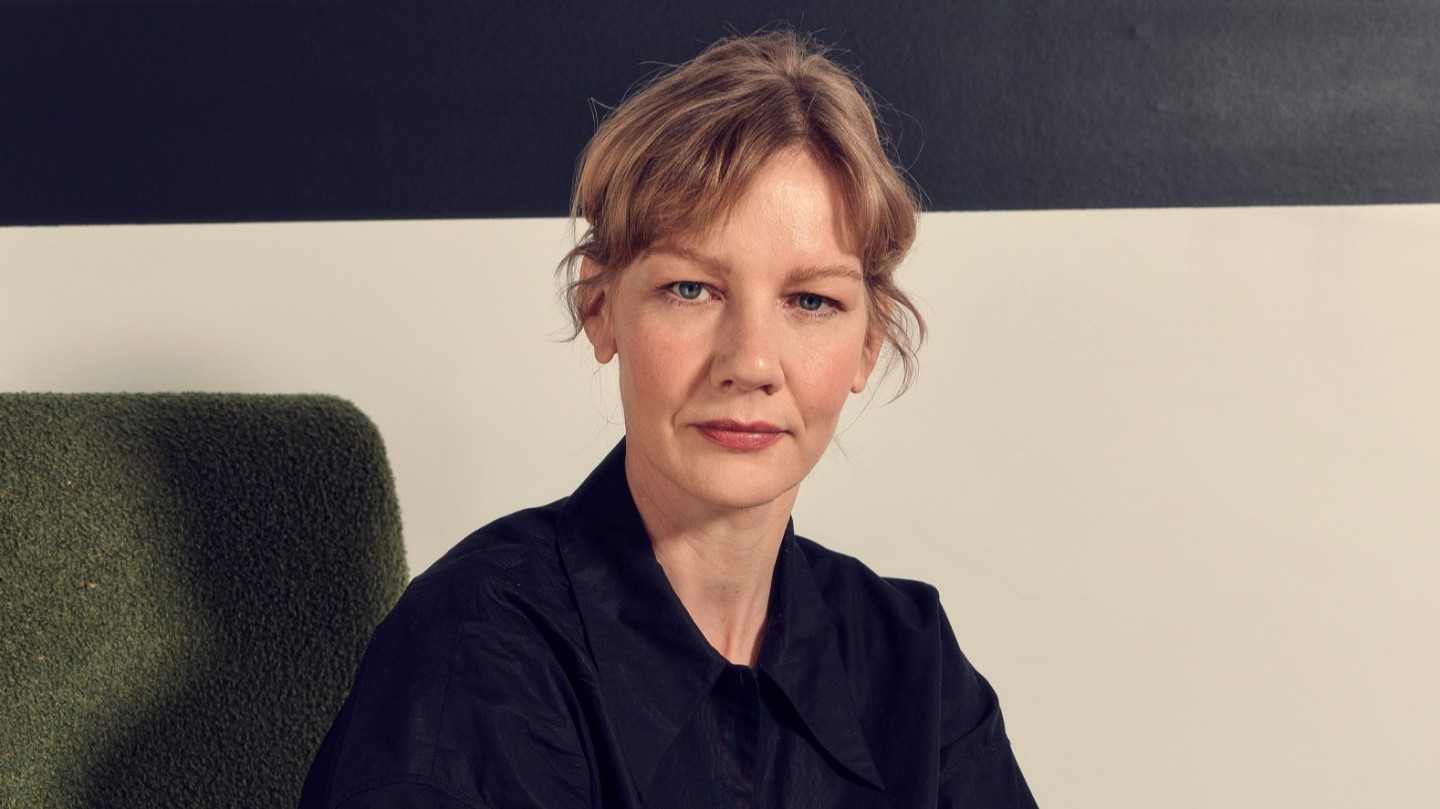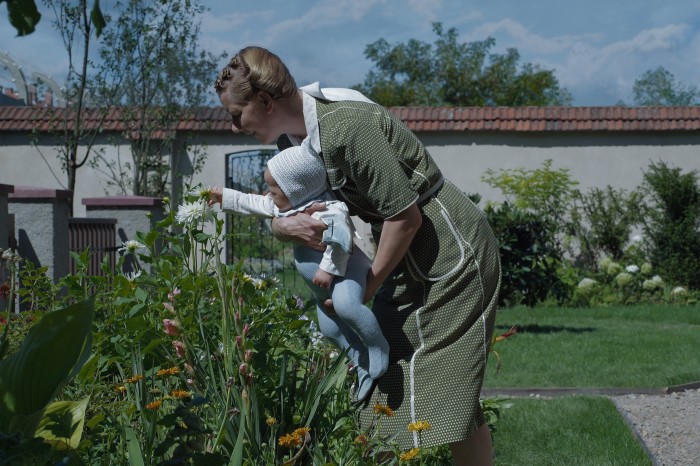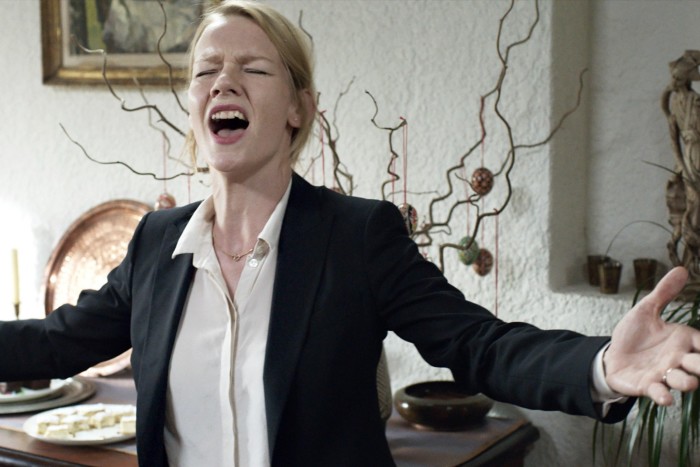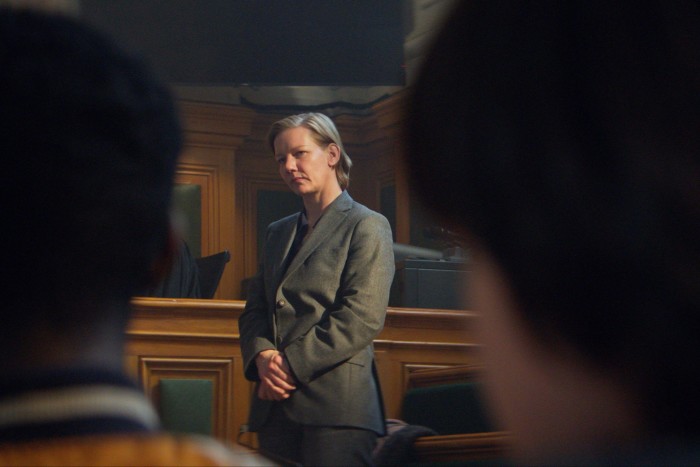Meet Sandra Hüller, star of two of the year’s best films: ‘Anatomy of a Fall’ and ‘The Zone of Interest’

Simply sign up to the Film myFT Digest -- delivered directly to your inbox.
The interview begins with an air of awkwardness and goes swiftly downhill from there until the whole endeavour is abruptly abandoned. Shortly thereafter, a tragedy — possibly a killing — occurs.
This, fortunately, is not a summary of my meeting with the German actress Sandra Hüller but of the opening scene of Anatomy of a Fall, the Cannes Palme d’Or-winning film in which she stars as a novelist and mother accused of murder.
But that is not all. Not content with headlining one of the best films of the year, Hüller stars in two. The other is The Zone of Interest, winner of the Cannes Grand Prix. Again, she plays a wife and mother, this one married to Rudolf Höss, commandant of Auschwitz, their cosy family home literally next door to the death camp. Smoke billows over its walls and into the well-kept garden where their children frolic.
That neither woman is particularly likeable is one of the most striking and fascinating aspects of both performances. In the case of Hedwig Höss, this may seem self-evident (more on her later) but in the case of Anatomy’s protagonist, the character’s prickly froideur seems more out of place for someone recently and violently bereaved, especially when it comes to the courtroom.

“She doesn’t do anything to make people like her more or less,” Hüller, 45, observes over Zoom from her home in Leipzig. “She’s just there. And she says: this is the way I am and this is the life that I am living and it should not be judged. That’s what I think, too. It’s kind of a personal opinion.”
It would be too simplistic to draw direct parallels between the thoughtful and likeable but no-nonsense Hüller and the character she plays, but it is worth noting that director and co-writer Justine Triet chose to call her Sandra. The actress demurs on the choice of name (“Justine would have to answer that”) but does claim some ownership of the character: “I had to decide how to portray her, and I wanted her to be a very honest person.”
Achieving honesty on screen has served Hüller well, from her eye-catching feature debut as a young epileptic subjected to a series of exorcisms in Requiem (2006) to her marvellously exasperated turn in the Oscar-nominated Toni Erdmann (2016), playing the straight woman to an outlandish and wildly embarrassing prankster father.
But for Anatomy’s Sandra, frankness can seem self-defeating. Her behaviour does not match the conventional image of grief-stricken wife and mother and this may work against her. It’s a phenomenon familiar from real-life cases such as the disappearance of Madeleine McCann, whose mother Kate was vilified for not shedding the expected tears during press conferences.
“Yes, she didn’t deliver drama,” says Hüller, a mother herself. “And that’s what people expect sometimes. In this case, they would expect Sandra to apologise for certain things that she maybe did wrong in her life or in conversations with her husband. But she doesn’t.” Then she adds, in Sandra’s defence: “Because why? Why would you?”

What elevates the film above other crime and courtroom dramas is how Triet and Hüller subvert expectations about motherhood, guilt and grief. If Sandra’s cool control is unsettling, when she does finally crack, the effect is overpowering, Hüller reaching astonishing new heights as an actor. But still we continue to ask ourselves questions long after the prosecutor has rested his case and the verdict has been delivered. As Hüller puts it: “The film is more about, not if she did it or not or if she is enough or not, but what we think about the character and why. Why do we assume she’s a bad mother?”
If the apparent absence of regret is one of the nagging themes in Anatomy of a Fall, it is the black hole at the centre of The Zone of Interest. Spending two hours in the company of the sickeningly callous Rudolf and Hedwig Höss is an ordeal as a viewer. What, then, is it like to spend weeks or months in that headspace?
“I have to say, it’s pretty calm,” is Hüller’s surprising answer. “She doesn’t really have a problem. What I realised is that there’s not so much going on in the head of this woman.”
She describes an actorly technique she uses when preparing for a role to help her explore and inhabit the character. “I wander around in my body and see how everything’s looking. I imagine it like a room . . . and with her, there was just nothing. And so it wasn’t very difficult. And that’s the monstrous thing about it, that it didn’t take her anything to be like that, to do that, to know about all that.”
Nevertheless, playing a Nazi was not something Hüller agreed to lightly. “I had doubts about it,” she says. “Because I wasn’t ever dreaming of playing Hedwig Höss in my life, to be in the presence of this energy or this part of history.”
What convinced her was British director Jonathan Glazer’s austere and unsensationalist approach. His film steers entirely clear of shock effect, eschewing even any depiction of the horrors of the camps.
“It was really his almost tenderness with treating this project and also his personal family relation to it and the responsibility that he felt . . . the hatred that he felt for these people and at the same time the interest in how could this ever work? How is it possible that humans do this to humans and live that life?”
One jolting moment in this hauntingly glacial film is when Rudolf Höss suddenly succumbs to an attack of nausea. But Hüller rejects the idea that this suggests any trace of conscience or humanity on his part.
“It’s just something that his body does. It doesn’t tell him anything. It’s not psychosomatic,” she says. “If we psychologise him, we’d say: his body is reacting because he’s doing really bad things and has so much guilt on his shoulders. I don’t think so. He just doesn’t care. His body is smart but still it wouldn’t make the connection in the brain or in the consciousness.”

The evidence for this is that nothing changes in his behaviour thereafter — and in this she sees a warning to us in the present. “It’s a really smart choice by Jonathan to cut back to him later and just show him going on doing his thing. Because it goes on, it doesn’t stop and we have to be very careful about every little rightwing movement that is happening right now.”
As if to underline Hüller’s point, a few weeks after we speak, Germany’s far-right AfD party is celebrating a breakthrough in regional elections and antisemitism is rising sharply in many other parts of the world.
It strikes me that one theme common to these two sharply divergent films is man’s capacity for compartmentalisation, for both good and ill. Sandra is able to continue fulfilling her role as strong and dependable mother even in the face of extreme duress while Hedwig studiously carries out the duties of doting Hausfrau without any concern for the daily slaughter going on next door.
What, I ask, would she like people to take away from the two films?
“Oh you’re really forcing me to say something smart,” she groans. But she doesn’t shrink from the challenge.
“I want people to see them because they both make us aware of what humans are capable of, and that it is a decision, who we want to be. Sandra chose to be this open person that isn’t applauded for it all the time. And the people in The Zone of Interest also made a decision. It’s not just something that happened to them, that they woke up in the morning and were responsible for the death of millions. It’s something they chose. And we all have a choice.”
‘Anatomy of a Fall’ is in UK cinemas from November 8, ‘The Zone of Interest’ from February 2

Comments